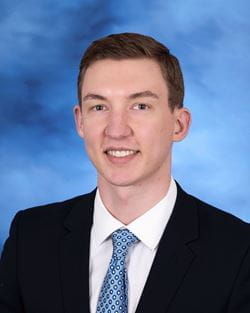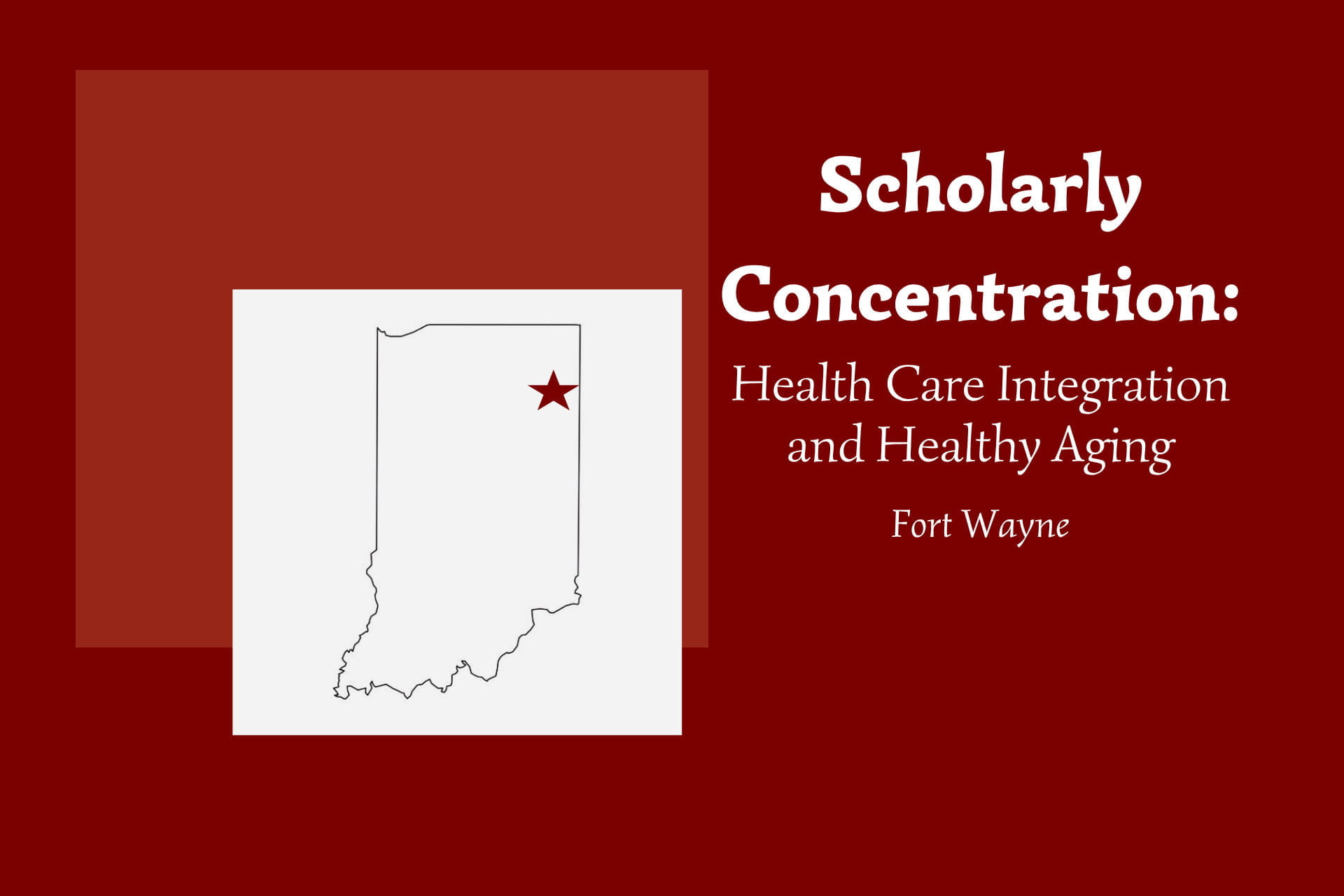Older adults are one of the fastest growing demographics in the United States. With the increasing aging population, it is important to equip future physicians with the knowledge and skills needed to effectively coordinate care for aging individuals. Students will learn the importance of collaboration among healthcare providers and specialists, along with community resources to provide patient-centered, value-based care that addresses the physical, emotional, and social needs of older adults while navigating complex healthcare systems. After completing the Health Care Integration and Healthy Aging Scholarly Concentration, students will have a deep understanding of how an integrated approach to healthcare can enhance the well-being and quality of life of aging individuals
Locations
Concentration coursework can be completed online. The scholarly project work occurs in Fort Wayne or Indianapolis.
Curriculum and Timeline
Students completing this concentration complete the same core curriculum as students in other concentrations. The didactic components provide a strong academic and experiential foundation in public health, and an understanding of patient-centered care through the lens of healthy aging that students can further explore in the concentration project and product. The journal club provides a platform for students to have longitudinal discussions about concentration-related topics with a cohort of students and faculty.

 How will your participation in the Health Integration and Healthy Aging Scholarly Concentration contribute to your overall career aspirations in medicine?
How will your participation in the Health Integration and Healthy Aging Scholarly Concentration contribute to your overall career aspirations in medicine?
 Why did you choose to participate in the Health Integration and Healthy Aging Scholarly Concentration program?
Why did you choose to participate in the Health Integration and Healthy Aging Scholarly Concentration program?

